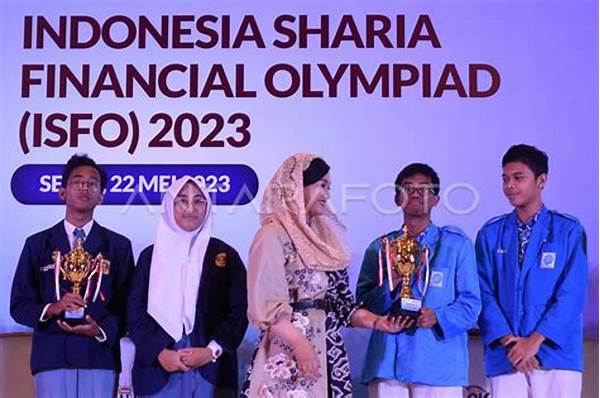Imagine a world where finance meets faith, where investments align with beliefs, and financial growth coexists with ethical principles. Sounds intriguing, right? Welcome to the realm of Sharia-compliant financial instruments in Indonesia, a captivating landscape where traditional finance intertwines seamlessly with Islamic values. As a burgeoning hub of Islamic finance, Indonesia offers a plethora of Sharia-compliant options that are not only appealing to devout Muslims but also to investors seeking ethical alternatives.
Read More : A Guide To Choosing Electronic Instruments With Clear Sound At Affordable Prices
In recent years, the demand for Sharia-compliant financial products has skyrocketed, driven by a combination of religious adherence and the appeal of ethical investment. But what makes these instruments so popular, and why is Indonesia at the forefront of this financial revolution? In this article, we will delve into the intricacies of popular Sharia financial instruments in Indonesia, shedding light on their structure, appeal, and the unique opportunities they present.
The Essence of Sharia Financial Instruments
Sharia financial instruments in Indonesia are not just financial tools; they are a manifestation of economic justice, where transactions prioritize fairness and transparency. Among the most celebrated are Sukuk, often referred to as Islamic bonds. Unlike conventional bonds, Sukuk are asset-based and do not involve interest, resonating with the Islamic prohibition of Riba (interest). Indonesian government and corporations have embraced Sukuk, propelling it to the forefront of the financial landscape.
Another cornerstone of Sharia finance in Indonesia is Islamic mutual funds. These funds adhere to strict criteria, investing in companies that comply with Islamic principles. The appeal of these funds lies in their ability to generate returns while maintaining ethical and religious integrity. No gambling, no alcohol, no forbidden activities—just pure, principled investments that attract a spectrum of investors who value both profit and principle.
Sukuk: The Islamic Bond Revolution
At the heart of Sharia finance in Indonesia is Sukuk, which has become a favorite investment vehicle for both locals and global investors. The country’s burgeoning economic prospects, coupled with its robust regulatory framework, make it an attractive hub for Sukuk issuance. These Islamic bonds are structured to provide returns through profit-sharing rather than interest payments, aligning perfectly with Islamic law.
Sukuk’s popularity can be attributed to its tangible asset backing, offering security and stability even in fluctuating markets. Moreover, the Indonesian government frequently issues Sukuk, inviting participation from both local and international investors. This inclusive approach not only funds national projects but also promotes Indonesia as a leader in Islamic finance on the global stage.
Islamic Mutual Funds: Aligning Faith with Finance
In the realm of ethical investing, Islamic mutual funds stand out as a compelling choice. These funds have gained traction among Indonesian investors who seek to grow their wealth without compromising their religious values. By investing in Sharia-compliant companies, these funds encapsulate the essence of ethical investing.
The selection process is stringent; companies are meticulously screened to ensure they meet Sharia standards. This process not only filters out industries deemed unethical but also encourages socially responsible business practices. Interestingly, this adherence to ethical norms often results in sound financial performance, as responsible companies tend to thrive over the long term.
A Deep Dive into Sharia Financial Instruments
Exploring the Landscape of Sharia Finance
Sharia financial instruments are ingeniously designed to comply with Islamic law, effectively meeting both financial and ethical requirements. Here’s why these instruments have captured the hearts of many:
Read More : Analog Keyboard Synthesizers Popular Among Producers
The Detailed Mechanics of Sukuk
Sukuk are more than just interest-free bonds—they are contracts representing proportional ownership in a tangible asset or business venture. This structure promotes the equitable distribution of risk and returns, setting it apart from conventional bonds.
Understanding Islamic Mutual Funds
Islamic mutual funds operate on a simple yet effective principle: invest in companies adhering to Islamic tenets. The process involves rigorous screening to exclude companies involved in unethical practices.
Unlocking the Benefits of Sharia Financial Instruments
The Appeal of Ethical Investing
Investors across Indonesia and beyond are discovering the allure of Sharia financial instruments. But what are the driving forces behind their popularity?
The Future of Sharia Finance in Indonesia
As Indonesia continues to build its reputation as a hub for Islamic finance, the future looks promising. The government’s proactive approach, combined with increasing consumer awareness, paves the way for a robust Sharia finance ecosystem.
Conclusion: A Future Rooted in Ethical Finance
In conclusion, the popularity of Sharia financial instruments in Indonesia is no accident. It is the result of a perfect amalgamation of religious principles, ethical values, and economic opportunity. As investors seek avenues that offer both financial returns and adherence to personal beliefs, Sharia-compliant instruments stand out as a compelling choice. Indonesia, with its strategic initiatives and investor-friendly policies, continues to spearhead this movement, setting a benchmark in the world of ethical finance.
With the world increasingly leaning towards ethical and sustainable practices, Sharia financial instruments represent not just a trend but a paradigm shift in how finance is perceived and practiced. Whether you are an investor looking for ethical opportunities or someone intrigued by the integration of faith and finance, the burgeoning landscape of Sharia finance in Indonesia offers something unique—an opportunity to grow wealth responsibly and ethically.
